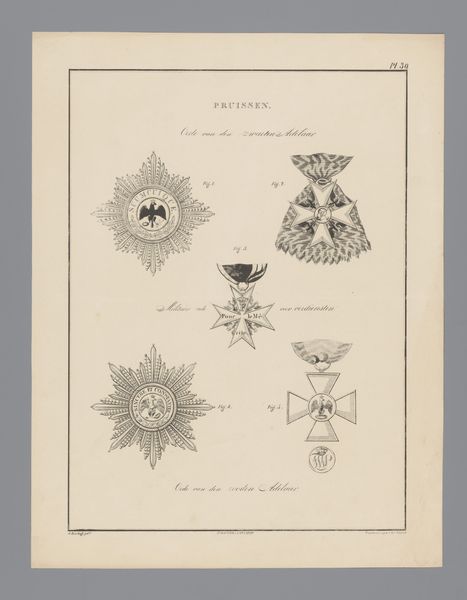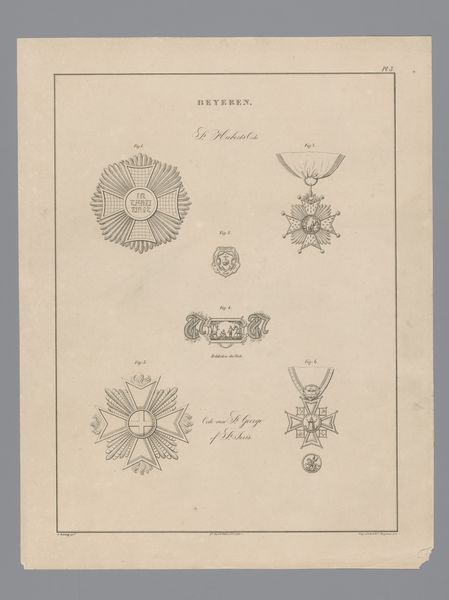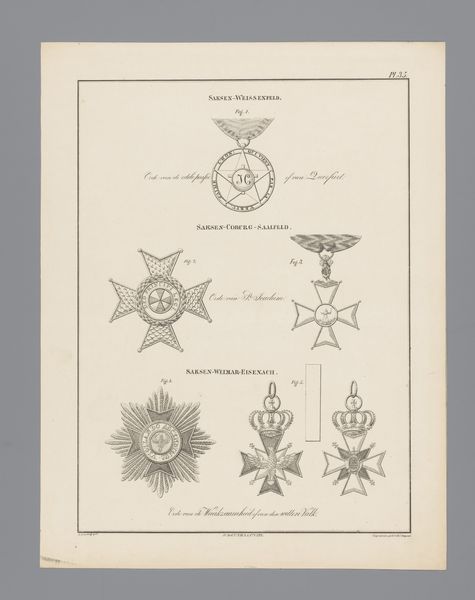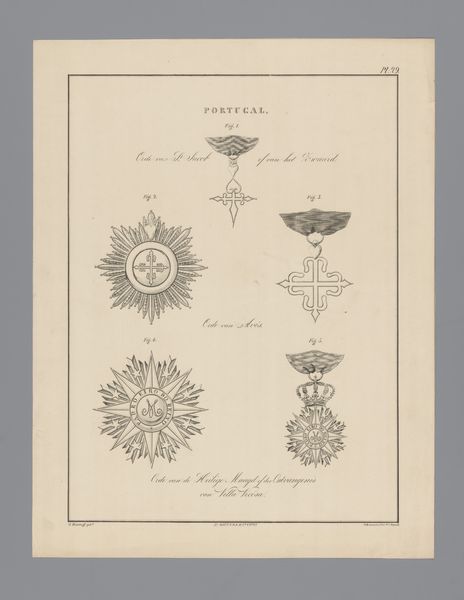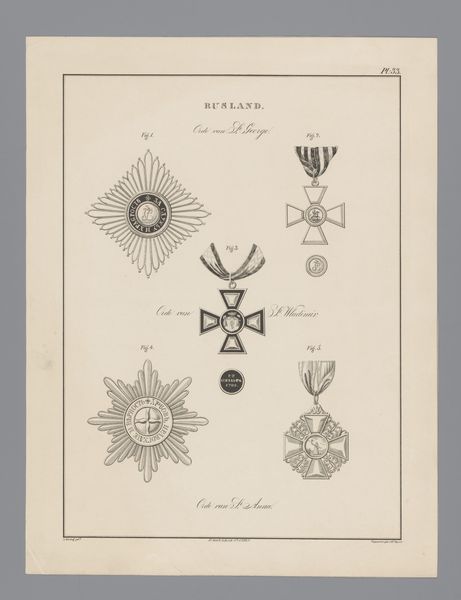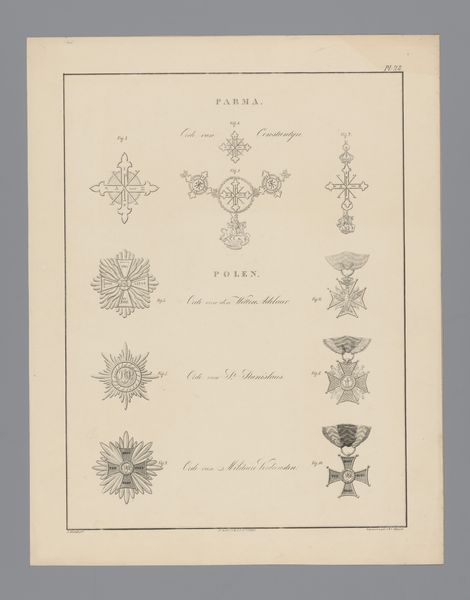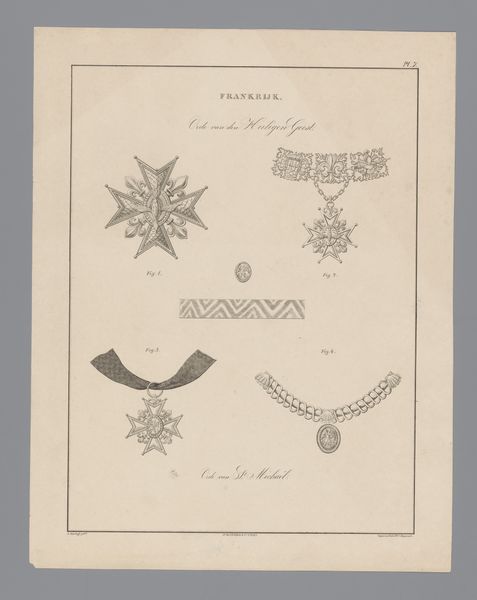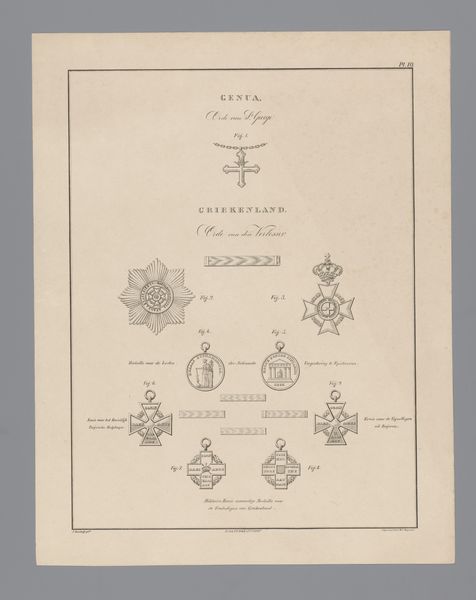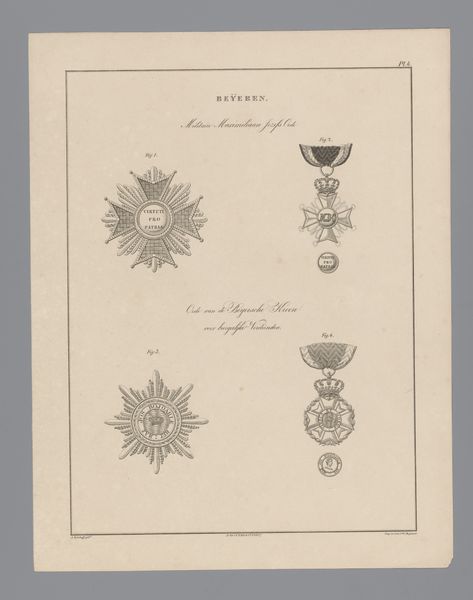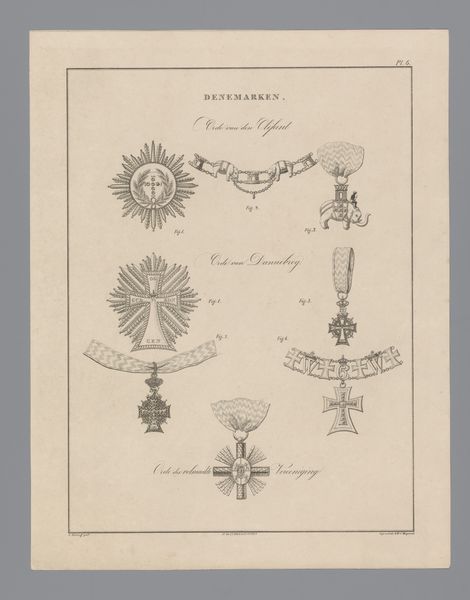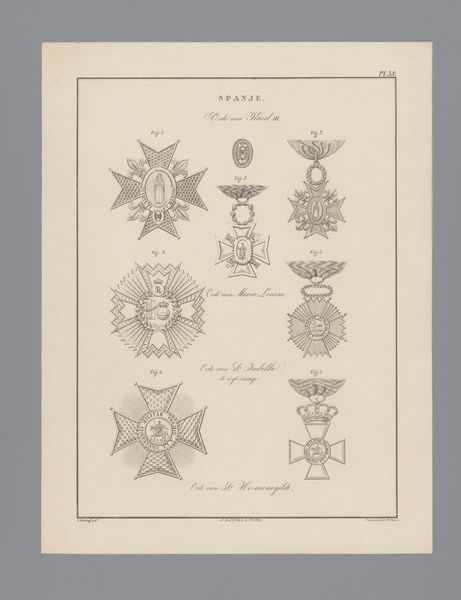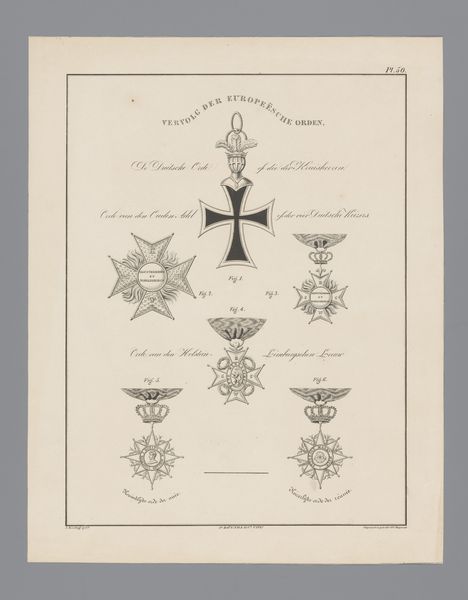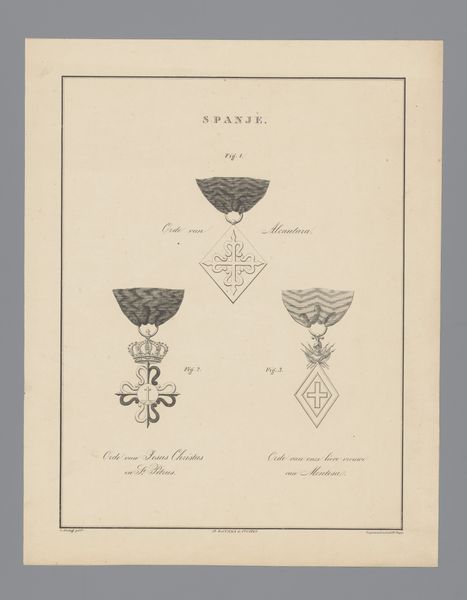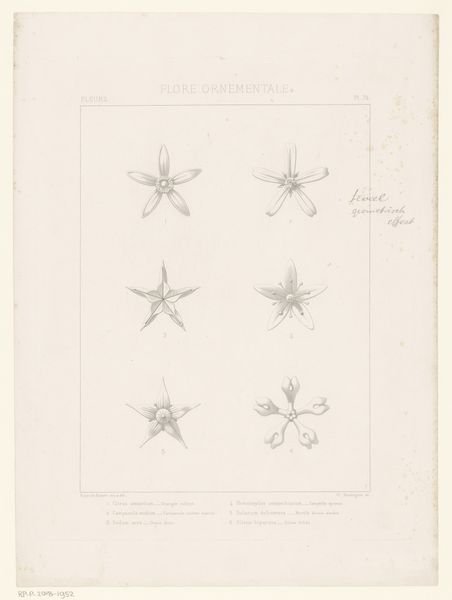
print, engraving
# print
#
history-painting
#
academic-art
#
engraving
Dimensions: height 405 mm, width 316 mm
Copyright: Rijks Museum: Open Domain
Editor: This print from 1843 by Willem Charles Magnenat showcases different "Ridderorden uit Württemberg" - orders of knighthood from Württemberg. I’m struck by the detailed engravings; each medal looks incredibly precise. What strikes you most about this piece? Curator: It's fascinating to consider the materiality of these objects – not just the precious metals we might imagine, but the social "metal" they represent. Each strike of the engraver’s tool is a record of the hierarchical structures it embodies, the power of the monarchy. These aren't just objects; they’re tools for maintaining a specific social order, aren't they? Think about the labour invested in creating both the physical medals and this print depicting them. Who had access to these rewards and who created the symbols? Editor: That’s a different way to think about it! It’s interesting how the print democratizes them somewhat. Were these prints widely circulated, accessible to the common person? Curator: That's the tension, isn't it? While the actual medals were limited to the elite, this print makes them available, albeit in representation, to a broader audience. What effect do you think that circulation of the image has? Does it reinforce the power structure or in some ways demystify it? Perhaps prompting viewers to see who is – and is not – being recognized. Editor: Hmm, perhaps a bit of both? Thanks, I didn’t initially consider how the production and distribution relates to the power structures they represent. Curator: Exactly! Reflecting on the context in which an artwork or any object is made gives it a whole new dimension of meaning.
Comments
No comments
Be the first to comment and join the conversation on the ultimate creative platform.
